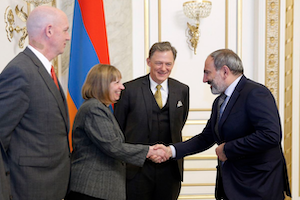Armenia Seeks Re-Energized Ties with Georgia
By Natalia Konarzewska
April 15, 2020, the CACI Analyst
Armenia’s Prime Minister Nikol Pashinyan visited Georgia on March 3-4 to discuss bilateral relations and held several high-profile meetings with top politicians including his Georgian counterpart Giorgi Gakharia and president Salome Zurabishvili. This is Pashinyan’s third visit to Georgia since he assumed office in 2018, following a peaceful power shift ousting the previous unpopular regime. His government has made a broader effort to reinvigorate ties with Georgia. Despite fundamentally different geopolitical outlooks and various challenges, Tbilisi and Yerevan have maintained good neighborly relations based on political pragmatism. Yet their partnership still has room for improvement.
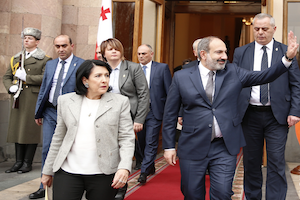
New Hope for a Breakthrough in the Nagorno-Karabakh Deadlock?
By Vasif Huseynov
April 6, 2020, the CACI Analyst
On 28-30 January, in Geneva, Switzerland, the foreign ministers of Armenia and Azerbaijan held an OSCE-mediated meeting on the Nagorno-Karabakh conflict. The meeting lasted for eleven hours and raised hope, though rather limited, for a breakthrough. Particularly positive developments include a decline in the number of causalities on the line of contact and that the meeting’s final statement for the first time emphasized the confidentiality of the negotiations. However, while these facts may induce some optimism, most other developments in the relations between Baku and Yerevan over the last year indicate that the sides remain far from a breakthrough.
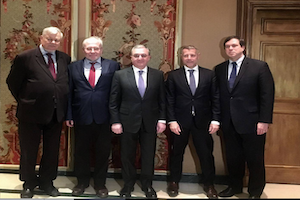
China's Soft Power in the South Caucasus
By Nurlan Aliyev
March 2, 2020, the CACI Analyst
In December 26, 2019 , the Georgian National Museum presented a new exhibition titled “Chinese Art in the Georgian National Museum,” dedicated to the 70th anniversary of the People’s Republic of China, and a book on the theme by Georgian authors. Within this project, supported by the Embassy of the People’s Republic of China in Georgia, several exhibitions of works by Chinese painters take place in Tbilisi between December 2019 and February 2020. In recent years China’s growing economic presence in the South Caucasus has been accompanied by developments in cultural and educational relations between China and the regional states.
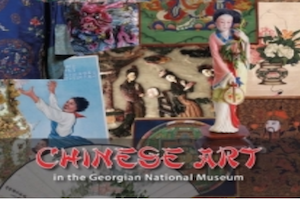
Armenia's Post-Revolutionary Government Seeks to Speed up Reform
By Armen Grigoryan
January 21, 2020, the CACI Analyst
A year after winning a two-thirds majority at the snap parliamentary elections, Armenia’s Prime Minister Nikol Pashinyan has acknowledged flaws in the government’s previous approach to the reform process, admitting that some essential reforms have practically been stalled. Pashinyan continually enjoys a considerably high level of public support, and needs to take decisive steps towards more drastic reforms, possibly by mobilizing support from different groups that welcomed the “Velvet Revolution” and the wider expert community.
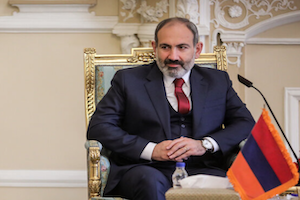
Armenia and the U.S.: Time for New Thinking
By Eduard Abrahamyan
October 2, 2019, the CACI Analyst
Armenia’s 2018 Velvet Revolution raised hopes for a reinvigoration of the country’s decades-long partnership with the U.S. However, this relationship remains stagnant, despite the visit of a U.S. delegation led by National Security Advisor John Bolton in October 2018 and the subsequent visit of Deputy Assistant Secretary George Kent to Yerevan in May 2019, resulting in the formal elevation of Armenia’s relations with the U.S. to the level of “strategic dialogue.” Moreover, Yerevan’s decision to dispatch a military-humanitarian mission to Syria remains an irritant in its interaction with Washington. As a consequence, the ties have reached a historical low-point in comparison with the improving cooperation between the U.S. and other Caucasian states.
